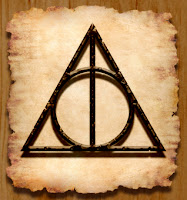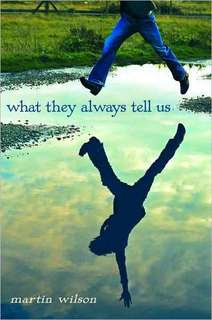Since January I've adopted what for me is a new approach to finding new books by authors I don't already know. I browse the New Books section.
In the process I have marveled at the arcane masterly of book cover designers.Somehow my eye is consistently drawn to the sort of books I want to read.
Here is a list of books which "leapt off the shelves at me" over the past five months.
The supernatural enhancements : a novel, by Edgar Cantero
This was a surprising hybrid. It initially presents itself as a ghost story, yet it develops into a sort of steam punk/science fiction mystery.
As Booklist writes, the story is told "through diary entries, transcripts of audio and video recordings, letters, and other media," which means Cantero must lead the reader to piece the twisty plot together through glimpses from different sources.This novel might intrigue Arthur Conan Doyle, were he transported into the 21st century.
Gutenberg's apprentice : a novel, by Alix Christie
I love a well-researched, engagingly written historical novel, especially one which goes behind the sanitized mythology of famous figures to share what the historical record reveals about their real, contradictory complexities.
The author's website writes: "Peter Schoeffer is on the verge of professional success as a scribe in Paris when his foster father, wealthy merchant and bookseller Johann Fust, summons him home to corrupt, feud-plagued Mainz to meet...Johann Gutenberg, a driven and caustic inventor, [who] has devised a revolutionary—and to some, blasphemous—method of bookmaking: a machine he calls a printing press."
Delia's Shadow, by Jaime Lee Moyer
Light, entertaining mix of "cozy murder mystery" and ghost story. Follows the formula of the first genre, but with interesting twists.
From the author's website: “Spirits seek vengeance while the young try to build a future in a fog-shrouded San Francisco shaken by more than the great earthquake. This bravura mix of ghost story and historical mystery will chill and grip its readers from first page to last.”—Chaz Brenchley , author of House of Doors and House of Bells
 The three-body problem, by Liu Cixin
The three-body problem, by Liu CixinA highly thoughtful and unusual approach to science fiction storytelling as a platform for critiquing modern Chinese history and human nature in genera.
"[Spans] multiple decades and characters, but…zooms in on Ye Wenjie and Wang Miao, two scientists in the very near future. Wenjie is an astrophysicist...daughter of a physicist who was executed during the Cultural Revolution for daring to teach the "reactionary" idea of general relativity. Miao is a nanotech engineer, and he's been swept up in a virtual-reality, online video game called Three Body that's so deeply metaphysical, it's begun to resemble a cult….
"By the time the book hits its peak, it's unveiled a conspiracy that spans solar systems — one that not only threatens to alter the human race, but the very building blocks of physics that we've evolved to understand."—Jason Heller, NPR Books
The Bend of the World, Jacob Bacharach
Who knew Pittsburgh was so weird? UFOs, a secret society with the world domination ambitions of the Illuminati, and a slacker 20-something antihero who somehow grows up despite himself.Funny, self-deprecating humor with a surprising depth of maturity for a first novel.
"Set in Pittsburgh, the book is a rollicking, occasionally mad blend of dark workplace comedy and crooked love triangle(s), improbably suspended in a web of conspiracies and conspiracy theories involving, variously, UFO sightings over Mount Washington, time travel, a corporate takeover, Bigfoot, secret chambers beneath the Point, Nazi ancestors and plenty of drugs. The narrator is Peter Morrison, age 29, with a fateful 30th birthday party looming."—by Bill Driscoll, Pittsburgh City Paper.com
Us conductors : in which I seek the heart of Clara Rockmore, my one true love, finest theremin player the world will ever know, by Sean Michaels
I had known of Lev Sergeyevich Termen as the early 20th century inventor of the theremin, an ethereal musical instrument played without touch, changing pitch and volume by moving one's hands within an electromagnetic field.
There is so much more to Termen's story in this fictionalized autobiography. Lenin sends Lev to the United States as an industrial spy, something he does with clumsy desperation. The story is supposedly written later by Lev while in captivity under Beria, Stalin's chief of secret police.
"[Lev] delights in creating new inventions and discussing theory with foreign scientists, but leaves the subterfuge up to his handler. Leon’s chief joy, other than science, is an American violinist named Clara Reisenberg. Their love affair is intense, buoyed by Harlem dance halls and the ethereal song of the theremin."—from The Masters Review: A Platform for Emerging Writers
The Buried Giant, by Kazuo Ishiguro
(author of The Remains of the Day and Never Let Me Go)
A fable of a misty, empty post-Arthurian 6th century England in which everyone suffers a supernatural memory loss. An elderly Briton peasant couple set out to find a grown son they vaguely remember having left them as a youth under troubling circumstances. On the way they meet Saxon villagers and warriors, fiercely ascetic monks, Aurthur's sole surviving knight, and the curses and mysteries of this superstitious world.
Ishiguro lets his readers struggle together with his characters as they reconstruct the past and seek to escape the dooms it may hide.
The Absolutely True Diary of a Part-Time Indian, by Sherman Alexie
A funny, emotionally honest, semi-autobiographical YA tale of a teenage Spokane Indian's effort to escape the alcoholism and poverty of "the rez" by transferring to the whites-only high school 22 miles away.
"For 15 years now, Sherman Alexie has explored the struggle to survive between the grinding plates of the Indian and white worlds. He’s done it through various characters and genres, but The Absolutely True Diary of a Part-Time Indian may be his best work yet. Working in the voice of a 14-year-old forces Alexie to strip everything down to action and emotion, so that reading becomes more like listening to your smart, funny best friend recount his day while waiting after school for a ride home.—Bruce Barcott, The New York Times: Sunday Book Review
Heraclix and Pomp : A Novel of the Fabricated and the Fe, by Forrest Aguirre
Another supernatural tale, this time from 18th century Europe. A necromancer who has brought a golem to life attempts to sacrifice an immortal fairy in a ritual pact with Beelzebub. The two escape and wander from Vienna to Prague to Istanbul to Hell.
Heraclix seeks to rediscover the people from whose body parts he has been reanimated. Pomp seeks to understand the mortality she has now tasted.
I am only a few chapters into this novel, yet it has my full attention.




















